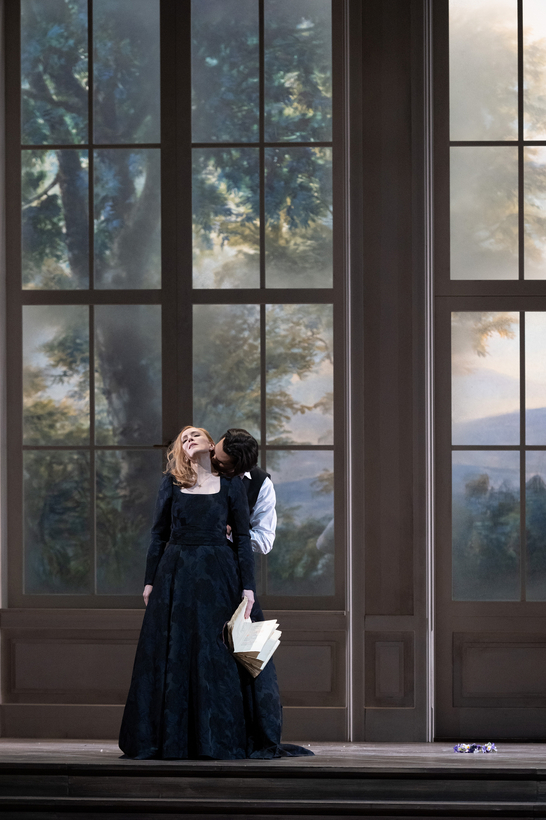As Dante preaches in Canto V of the Inferno, one way to hell is paved with romance novels. Consider the historical figures of Paolo Malatesta and his brother’s wife Francesca da Rimini, great readers of Arthurian legend. Just where Lancelot steals a first forbidden kiss from Guinevere, Paolo and Francesco, too, give way to long-smothered passion. Death at the hands of Paolo’s brother and damnation by poetic decree follows in short order.
Francesca’s confession, dispatched in 11 lines, has inspired countless self-standing treatments, among them Tchaikovsky’s popular Wagnerian symphonic fantasy and Rossetti’s dreamy Pre-Raphaelite watercolor. Of several operas, Riccardo Zandonai’s Francesca da Rimini has proved the most durable, but that’s not saying much. It reached the Met in 1916, two years after its Italian premiere. “Not again!” groused The New York Times, in a great many more words, when the company scheduled an encore the following season. Since then, cult divas have graced rare revivals, to little avail. But a stylish contemporary reboot by Christof Loy, filmed live at the Deutsche Oper Berlin in March 2021, makes a surprisingly potent showing.
The libretto, after a fin de siècle stage play by Gabriele D’Annunzio, swathes Dante’s spare vignette in lavish spectacle, decadence, and icy cruelty. Wait for the courtier who shuts up a noisy offstage prisoner with a dagger and then traipses around court with the severed head.

But that’s just window-dressing. The central figure is the proud beauty Francesca, sister in spirit not only to Guinevere but also Isolde, Mélisande, and even Juliet. For political reasons, her Machiavellian clan has contracted her to Giovanni lo Sciancato (“Crippled John”), a mate they know she will spurn. But when Giovanni’s perhaps innocent brother Paolo il Bello (“Gorgeous Paul”) comes around with the paperwork, she instantly signs on the dotted line.
The delirious buildup to Paolo’s arrival mimics the Presentation of the Rose in Richard Strauss’s Der Rosenkavalier, though this time, it’s the bride-to-be who hands her fiancé’s emissary the symbolic bloom. The die is cast without their exchanging a single word, but never fear. Their rhapsody of love and death has just begun.
The soprano Sara Jakubiak, a classy Julianne Moore look-alike, lends Francesca’s music an ardent sheen. As Paolo, Jonathan Tetelman doesn’t preen and doesn’t have to. He brandishes his dark tenor with single-minded intensity, letting his native charisma do the rest. The woofy baritone Ivan Inveradi cuts a hulking figure as Giovanni. Charles Workman, another tenor, chews the scenery as Paolo and Giovanni’s brother Malatestino, who rats out the lovers from sheer spite. In the excellent supporting cast, the baritone Dean Murphy elevates the lovingly crafted cameo of a Minstrel far beyond the purely ornamental.
Zandonai freely acknowledges his debts to Wagner and Debussy yet possesses a voice of his own. His ear for timbre and pulse is especially refined. If only his melodies measured up to his palette! As it is, he’s like a filmmaker whose art direction eclipses the action and dialogue. That’s not the worst flaw in the world.
Francesca da Rimini is available for streaming on the Naxos Video Library
Matthew Gurewitsch writes about opera and classical music for AIR MAIL. He lives in Hawaii

